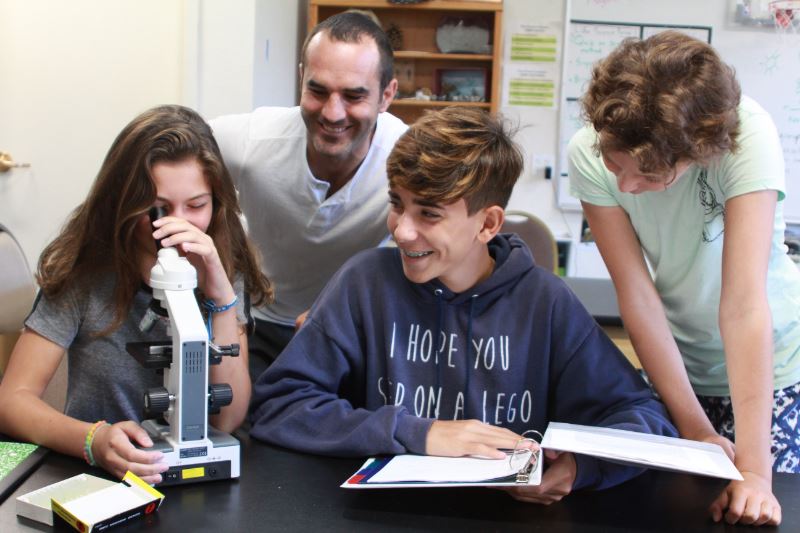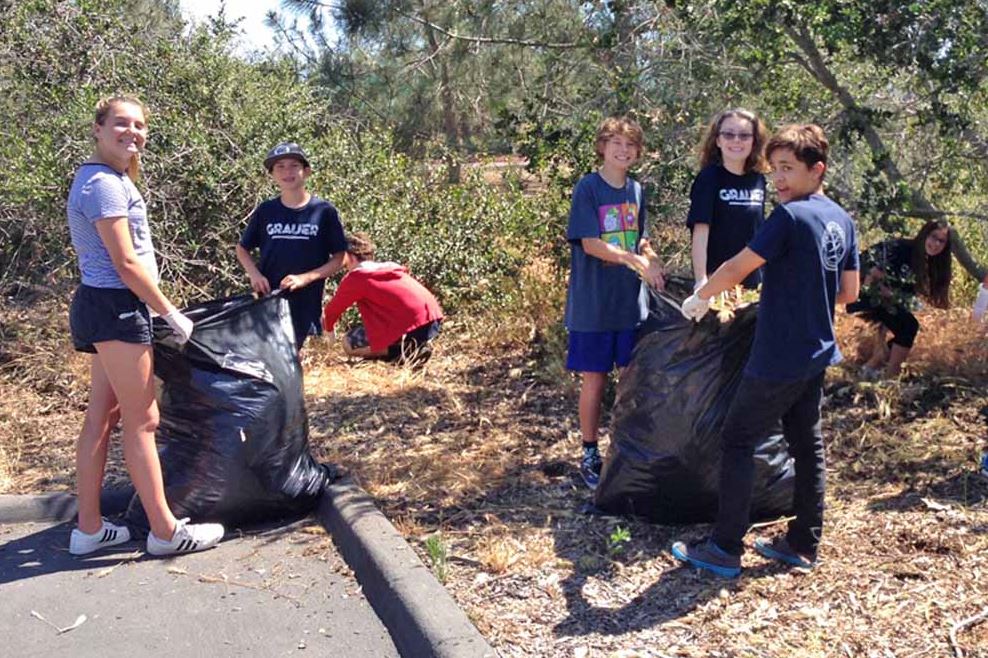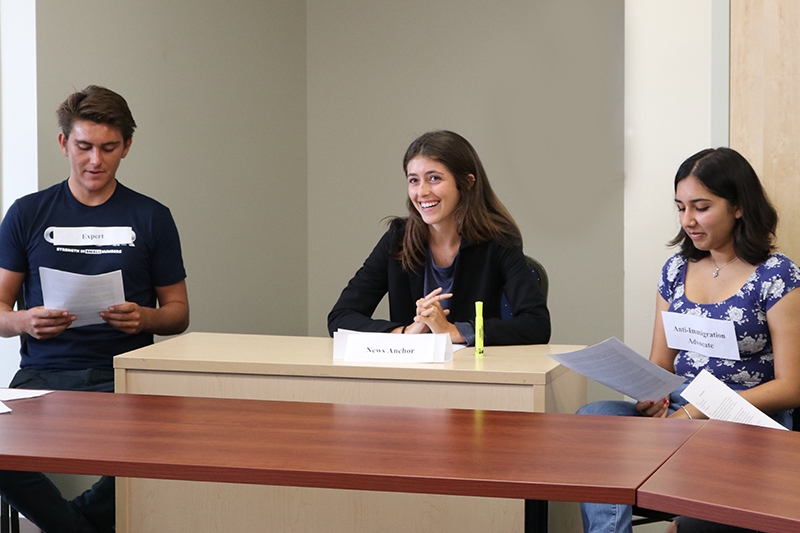“Imagination is more important than intelligence.”
A lot has happened in the field of education over the past few generations and, in all reality, centuries. As a result, there are many great philosophies of education to choose from when designing curricula that accentuates the culture(s) of our small schools. The only potential downside of the plethora of great philosophies of education is an increased complexity in what is already an overly-complex world.
How do we accentuate the culture of our school amidst the swirl of choices and verbiage: Is Montessori the way to go? Socratic method? Expeditionary or Discovery-based learning? What about Harkness Method? Who was Rudolph Steiner, really, and what is the true spirit of Waldorf education in a modern-day context? What is progressive education? Democratic education? Should we strive for a school that specializes in mastery learning, discovery learning, expeditionary learning, or a combination of them all?
These considerations are a lot to digest! To complicate matters even more, as soon as we think we know the “state of the art,” the landscape changes. The great philosophies of education evolve further, and we must open our minds up all over again. Before we get overwhelmed with ever potential and possibility, let’s step back and think of our schools in the way we might think of a physician or lawyer: These professionals are familiar with the historical greats in their field, and they want to make sure their work is grounded in the work of those greats.
The Difference Between “Real” Education and Theories of Education
There is a huge difference between what we call “real” education and theories of education. As educators, we must be committed to cultivating a balance between philosophy and pragmatism. Of course, we want to make sure we have a clear, informed philosophy. And, like all of the great philosophies of education, ours should be both practical and elegant.
Combining real education and theories of education requires a foundation of tried and true methods that also includes our own unique “spins” based on what works best for our students both inside and outside of the classroom environment. Expert educators are lifetime researchers. They are always evaluating groundbreaking work and trends, and then integrating these into their basic program and philosophy. Almost magically, we must be able to take all of our years of research and thought development; then thoroughly express it to our colleagues, superiors, and of course, parents and students in concise, clear, sensible terms.
In this context, here is some wise advice: Beware of people with theories that become immutable, inflexible laws for educational curricula and conduct! As soon as an educator or school becomes too enraptured with any one idea, they have parted ways with the original philosophy of the great educator who coined it. This is universal and applies to Montessori, Socrates, Steiner, Dewey, or any of the greats.
Sound ironic? It is. Namely, because all of these great philosophers held first and foremost a philosophy of openness in education. None of the enduring greats would ever stop listening to a student, or assume that one curricular path fits all students like a glove. Enlightenment, clear thought, strong values, and broad academic skill sets are the educational mountaintop. To get to the top, every single student must find their own way.
The Philosophy of Openness in Education

Openness in education is the ultimate philosophy. The caveat is that it takes an expert to practice openness in education and no human, however expert, practices this philosophy perfectly. Despite this ongoing challenge, one of the greatest benefits of small schools is their ability to facilitate openness in education. Small schools of all specialties are the perfect environments to mold the great philosophies of education into tangible, practical curricula that accentuates their cultural climates, while positioning students for success.
For example, discovery-based learning encapsulates a good many of history’s deepest and most powerful insights into teaching and learning. The constructivist learning that occurs from “real world” problem solving based on past experience and existing knowledge is invaluable for creating critically thinking, democratically minded citizens.
Discovery-based learning occurs best in a Socratic learning environment. Perhaps no philosophy espouses a Socratic learning environment more succinctly than Waldorf education. Combining discovery based learning and Waldorf education allows us to strategically place “arts across the curriculum.” This includes extended forays into nature. It also allows both experiential and expeditionary learning to organically merge into the daily lives of our students. This is the epitome of what Maria Montessori believed …that holistic, child-centered education is about giving students “choices” and clear “voices”.
The Harkness method ensures that most classes take place around a table where everyone is eye-to-eye. This allows for an open-minded atmosphere where a teacher is the facilitator, not the focus. In this environment, teachers can effectively use the Socratic Method. Of course, much of the wisdom of the Socratic Method exists in listening and probing students into their own wisdom. Specifically, the role of “teacher” is to engage students in cooperative conversations that encourage questioning and critical thinking as they develop their own clear voices, rather than simply“filling up” students with prepackaged, one-size-fits-all “expertise.”
John Dewey’s emphasis on hands-on education, or that students need to “learn by doing,” serves as an integral component of Socratic learning. At the same time, Paolo Friere’s groundbreaking work on cultural hegemony remains our conscience. It allows us to keep our school boundaries permeable while we engage with our community as compassionate and humanitarian partners, instead of culturally dominant overseers of universal knowledge or truth. Friere is also our conscience as we create dialogue built on mutual respect. This respect allows us to effectively situate learning in the context of making a positive difference in the world.
The capstone of the philosophy of openness in education, which many small schools excel at facilitating, is Mastery Learning. First described by the great Benjamin Bloom, Mastery Learning is one of the most difficult, yet powerful, philosophies to implement because it requires extensive monitoring and individualization. Our intimate learning environments make small schools ideal places for Mastery Learning to occur. The lack of large, impersonal classrooms with pre-packaged curricula let students take responsibility for their own development as learners, social leaders, and citizens fully prepared for the challenges of our interconnected, interdependent global community.
Practical Education Through Innovative Imagination
Small schools are the perfect incubation spaces for practical education through innovative imagination. By avoiding the trap of overly prescriptive and test-centric curriculum, we can help our students cultivate their own unique educational entrepreneurship. This combination of practicality and imagination serves them well during the course of their formal schooling. Just as importantly, it remains with them long after their last day of classroom learning comes to a close.
Small schools can also facilitate practical education through innovative imagination with service learning, self-directed education, technological and hybrid education, free schooling, and local, national or global expeditions where students become critically compassionate, culturally sensitive caregivers to their neighbors near and far alike.
No one expression, slogan, mission statement, or aphorism can possibly guide us all the time. None of the above-cited visionary geniuses would ever have reduced their belief system or educational philosophy down to a tweet. In this context, may openness always transcend ideology, and may we commit ourselves to constantly evolving our own philosophies to meet the unique generational and situational needs of those we serve.
As educators, practical education through innovative imagination means we must help our students try classes for fun, run wild ideas up the flagpole, make mistakes, follow a passion —then reconceptualize, or even outright reject that passion as they see fit to do so. We must want everyone to do enough “things” that they are drawn to do, rather than always plotting out a preordained, “cookie-cutter” path. Ultimately, we must believe they will achieve more enduring outcomes and cultivate their own unique combinations of guiding philosophies as a result.
The Great Philosophies and the Small School Movement

The special blend of all these powerful educational philosophies and schools of thought is an art and a science unto itself. Without hard work, perseverance, originality and creativity the great philosophies of education mean nothing in a “real world” context. This is why combining practical educational through innovative imagination will not work in a large school. Instead, the small school movement is the perfect place to stir this blend into reality!
We must commit ourselves to treating each philosophy and trend as another color in our palette. This palette eventually combines to become our own, uniquely canvassed work of art. As the small school movement is striving to be the educational and social leader for a new generation of learners, we must always be exciting, courageous, relevant, and dynamic …but we must also remain deeply rooted in a solid foundation of educational heritage.
The Small Schools Coalition is proud to stand at the forefront of the small school movement. We are dedicated to sharing the wisdom of the pantheon of great educational philosophers who have opened up so many vistas for us all. We are also proud to provide you with information and ideas outlining the effective implementation of the great philosophies of education in your unique small learning community. If you would like to become a member of the Small Schools Coalition free-of-charge, please fill out our online membership form. If you have any questions about implementing these philosophies, our founder Dr. Stuart Gruaer is happy to provide assistance. Please contact us to learn more!


Recent Comments